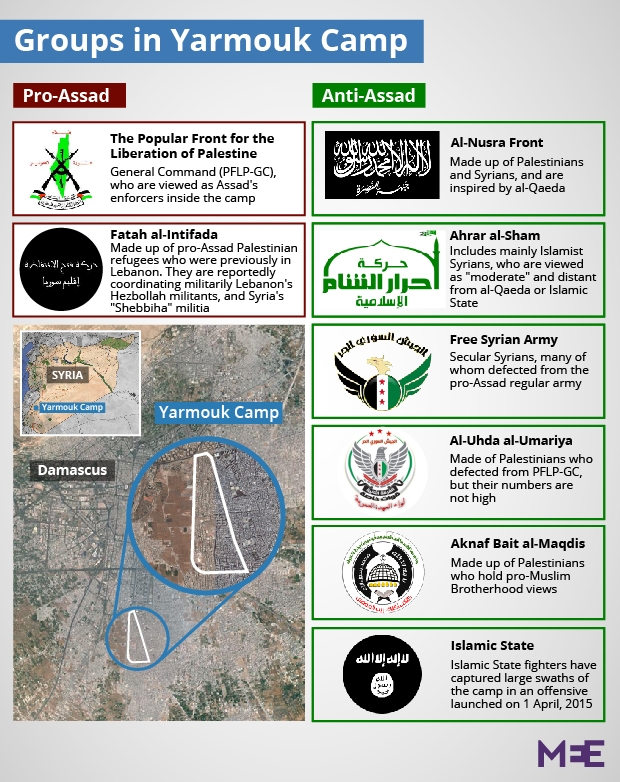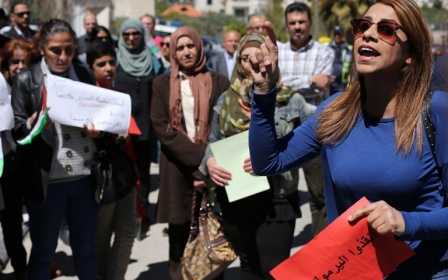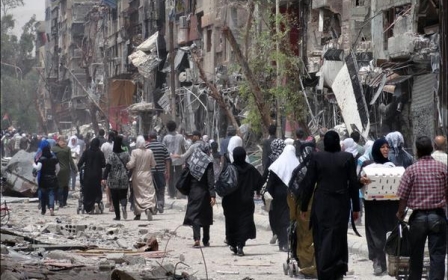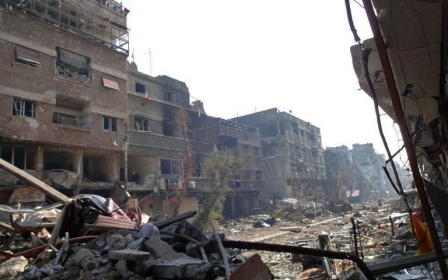UNRWA: Lives in Yarmouk ‘profoundly threatened’
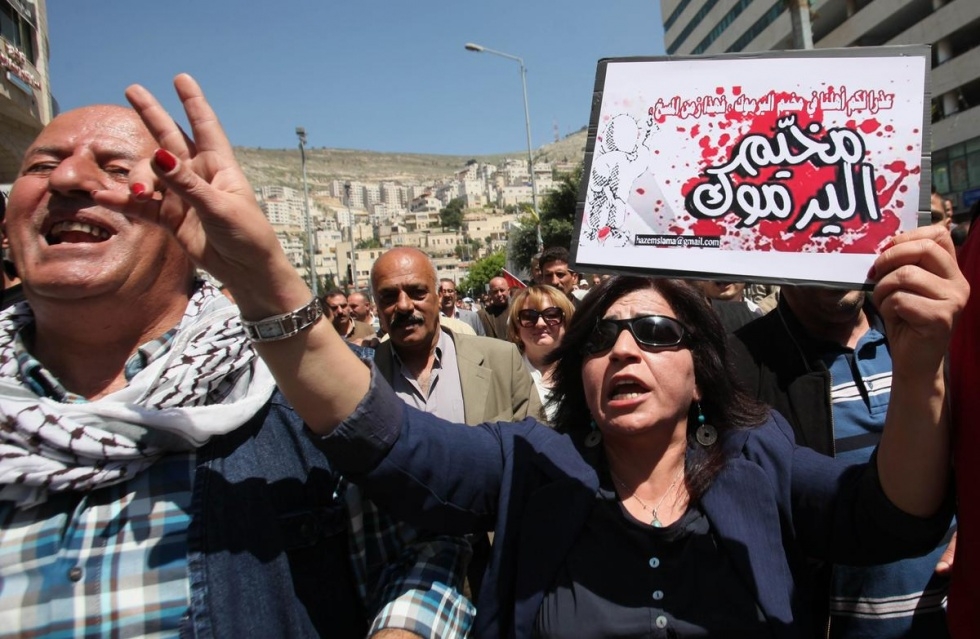
The United Nations Relief and Works Agency (UNRWA) has called for an immediate stop to all hostilities in Yarmouk camp in order to be able to deliver desperately needed humanitarian aid.
Pierre Krahenbul, head of UNRWA, told reporters in New York via videoconference that the situation in Yarmouk is “one of the most severe ever”.
The integrity of the entire international community is on the line if no action is taken on the situation of civilians in Yarmouk, he added.
The comments were made after an emergency UN Security Council meeting called to discuss the crisis.
Yarmouk, the largest camp for Palestinian refugees in Syria, lies just 10 kilometres from the capital Damascus. The once thriving area of 160,000 Palestinians and Syrians has now been reduced to a mere 16,000, with the camp under siege by the Syrian government for over two years.
More than 170 people have reportedly died from dehydration, severe malnutrition or disease since the start of the siege in December 2012.
Last Wednesday, the Islamic State entered the camp and now control parts of it, sources within the camp have said. Some factions within the camp are involved in daily gun battles with IS, while the latter has circulated images of the two men from an opposed faction they beheaded.
“The lives of civilians in Yarmouk have never been more profoundly affected,” said the UNRWA in a statement released today.
“The situation is extremely dire and threatens to deteriorate even further,” the statement continued. “UNRWA is ready to resume its assistance to the civilian population at any time but for that a cessation of hostilities is required.”
Syrian government forces control entrances to the north and east of Yarmouk. Some 2,000 people were evacuated from the camp on Sunday through two routes secured by the Syrian army. It is believed that 3,500 children are among the residents who have remained inside the camp.
The day before, government troops dropped barrel bombs on the camp causing heavy damage to the main roads, said residents.
The UK-based Syrian Observatory for Human Rights confirmed that at least 26 people, including civilians and fighters from IS and Palestinian factions, have been killed since Wednesday.
“Never has the hour been more desperate in the Palestine refugee camp of Yarmouk,” the UN agency said on Sunday. “We demand humanitarian access and the establishment of secure conditions under which we can deliver life-saving humanitarian assistance and that enables civilians to be evacuated.”
UNRWA spokesman Chris Gunness had already called the situation in Yarmouk as “an affront to the humanity in all of us, a source of universal shame”.
UNRWA has stated that there is no drinking water nor basic health facilities available in the camp and that food assistance is below the minimum required. A refugee who previously spoke to Middle East Eye said that people were waiting for a lull in the fighting before they head off to collect water from wells.
The agency called on the UN Security Council to act immediately on the issue and to “ensure that all civilians are protected in accordance with the UN charter and international law.
“Failure to do so could lead to the gravest and most appalling of consequences for civilians in Yarmouk,” the agency said.
On Monday, a delegation from the Palestine Liberation Organisation said it was heading to Syria to discuss with Syrian authorities the plight of the refugees in Yarmouk.
According to the PLO’s executive committee member Saeb Erekat, the Palestinian Authority president Mahmoud Abbas earlier on Monday had expressed grave concern over the crisis in Yarmouk, and denounced “the hideous crimes by the Islamic State group against our people.”
New MEE newsletter: Jerusalem Dispatch
Sign up to get the latest insights and analysis on Israel-Palestine, alongside Turkey Unpacked and other MEE newsletters
Middle East Eye delivers independent and unrivalled coverage and analysis of the Middle East, North Africa and beyond. To learn more about republishing this content and the associated fees, please fill out this form. More about MEE can be found here.


